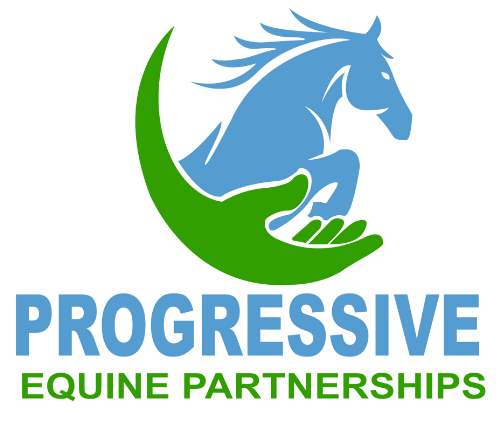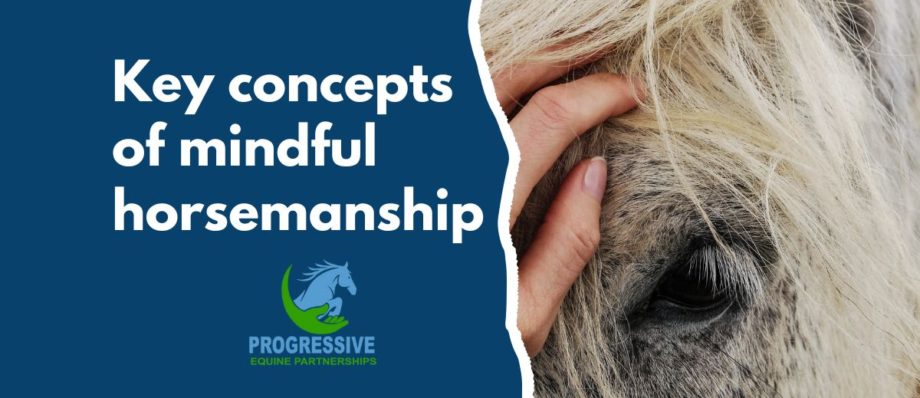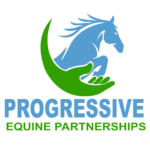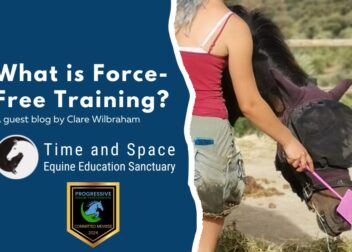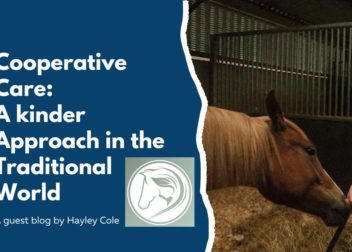Key Concepts of Mindful Horsemanship
There is a mental conflict that occurs when your values and beliefs don’t line up with your actions. This is called cognitive dissonance.
Progressive Equine Partnerships (PEP) has developed a learning structure that helps equestrians to overcome cognitive dissonance using the 3 main elements of mindfulness.
Awareness – Exploring self-awareness, values and beliefs and being aware of what we ask of our equine partner.
Non-judgement – Not judging each other or our equine partner. Being open to and considerate to the equines past experiences and not labelling an equine as ‘naughty’ ‘stubborn’ ‘rude’ etc
Living in the present – Enjoying an equine in the moments spent together with no pressure or expectation on the partnership.
By opening the mind and exploring self as well as learning about the horse you can begin to align your beliefs with your actions. A practice we call mindful horsemanship.
Awareness – Exploring self-awareness, values and beliefs and being aware of what we ask of our equine partner.
The term awareness when used in the context of mindful horsemanship means to observe in a detached, egoless manner whilst considering the limits of ones knowledge. This can be looked at on two levels; an internal level i.e. what’s going on with our thoughts and behaviours and an external level; what’s going on with our horse.
Internal awareness
This is the idea of noticing what’s happening as thoughts and emotions arise during our interactions with our equine partner(s). It is important to be aware of own values by exploring and identifying what is most important to you. Everyone has a different value set and understanding yours can help you better your unique relationship with horses. Your authentic values profoundly affect your life at a subconscious level determining your everyday decisions. Consciously identifying your values will help you make better and faster decisions, have more productive a relationship, and provide a framework for building on your partnership with the horse.
Learning to be mindful of your internal world helps you learn how to better your external world for your selves and equine partner. By exploring the internal world, you can better understand what your relationship with the horse means to you as an individual and alter your actions accordingly.

External awareness
This simply means the awareness of external factors that affect you and your horse.
Some examples of external factors include;
- How your horse interacts with you
- Your horses behaviour
- The use of equipment and the effect it has on the horse
- The way the horse is cared for
- The training methods used
External awareness is important because it is directly linked to our actions and equine interactions. When what you value the most (internal) is congruent with what you do (external), you are standing in your integrity.

Knowledge is the key to being externally aware. The more you understand about the horse, their needs and the effect of the way they are cared for and trained the better you can act with integrity and stay true to your values.
To be truly mindful of our equine partnerships we must be aware of what we are asking of them. It’s a good idea to remind yourself that you do not need to be in control of every situation. When things are not going as you had hoped come back to how you are feeling, look at the bigger picture and be willing to expand your external awareness. Being internally aware whilst open to growing external awareness then adapting your actions to align them with your values is a skill that takes time to develop but the benefits are hugely rewarding.
Some ways you can grow your external awareness
- Learn
- Keep an open mind
- Observe
The more externally aware you become the better you can align your actions with your values.

Non-judgement – Not judging each other or our equine partner. Being open to and considerate to the equines past and present experiences and not labelling an equine as ‘naughty’ ‘stubborn’ ‘rude’ etc
It is human nature to judge. Often the need to judge stems form fear, perhaps a fear of being inadequate, perceiving ones self to not be good enough or fear of the unknown. There for we criticise and judge to help us feel better about ourselves. Judgement is the opposite of love and compassion, so the less judgemental we become the more open and loving we become. The more open and loving we become within our equine partnerships the deeper we can connect.
The need to judge is something that is usually learnt or develops as we learn that we are in a judgemental world. The equestrian world can be a very judgemental environment to be in. We often judge our selves, each other and our horses.
We learn to judge particularly because it seems to be what most people do but also because it is something we experience others doing to us. This becomes a normal thing to do and we often do it without question.
It is possible to unlearn this habit. When you are aware and in the moment, create an intention to take a non-judgemental stance on any situation. This of course is a habit that takes time to break but the intention to not be judgemental is the most powerful way to create a change in mindset.
We often judge our horses based on their behaviour without considering why the horse is behaving in that manner. It is common in the horse world to hear language such as ‘the horse is stubborn, rude, lazy etc’. This use of language is judgemental. No consideration has been given to why the horse may be behaving in a particular way.
We judge ourselves more often that we realise. We can be our own worst enemies especially if we feel criticised by those around us. It is not uncommon for a person to judge their equestrian abilities based on how well a horse performs particularly in a competitive environment. Whilst focusing on how well we got the horse to perform in comparisons to others we are not looking at ourselves and our own achievements with our equine partner and are not considering our partnership in relation to our true values.
Mindful horsemanship encourages us to let go of negative dialogue, each time we catch ourselves doing it. By letting go of judgemental thought processes we can be open to exploring awareness. Over time we begin to recognise a horses behaviours as being deeper than just stubborn, rude etc and can begin to address behaviours in a positive way that benefit the horse. We can find inner peace with the knowledge that the horse has not been judged but instead they have been understood.
Because internally a lot of us are driven by our ego we are driven to make the horse perform or work for us whether it is because we are being judged by others or ourselves. We justify our actions and ignore how we’re feeling inside. The more you practice mindful horsemanship the more you will align with the true you. As you observe your thoughts notice if there is any judgement to yourself, you horse or others. Bring any judgemental thoughts back to the feeling only so that you can process the thought and let go of the feelings associated with those thoughts, allowing room for openness and the development of connection.
For example
A horse who is reluctant to go forward is immediately judged as being ‘lazy’. By labelling the horse in this way the rider, in the moment, feels it is acceptable to use a whip and spurs. When the rider takes a mindful approach, they acknowledge that one of their core values is to cause no pain. With this in mind they are open to exploring the reasons behind the horses reluctance to go forward and take appropriate action to address the problem in a way that they feel is in line with their values.
The true danger that many of us do not notice is that judgment often serves to prevent us from authentic connections with our equine partners, genuine self-knowledge/awareness, and achieving our most meaningful/value-based partnerships. In this way, judgment acts as a barrier that disconnects us from the deep equine connections we often desire.
Harsh Judgments Inflict Unnecessary Suffering
Freedom from the suffering that comes along with judgmental thoughts, emotions, and actions is attainable. Releasing judgment means allowing yourself to move into a place of emotional stillness, peace, and acceptance of what is. This allows us to move forward within our partnership with an open mind, willing to explore possibilities and act accordingly.
Freedom from judgment enables fear, anxiety and the need to control to leave your mind, greater expressions of love toward yourself and equine partner, and recognition that you have the power to change things so that you can act with integrity. The tricky part of practicing non-judgmental mindfulness (enabling greater awareness, open-mindedness, and curiosity) is learning how to identify what is truly within your control and be willing to widen your knowledge and implement change within your partnership. Your response to your horse and the meaning you ascribe to all things is up to you.
Change of all kinds – experienced as positive or negative – can be unsettling. We are creatures of habit in many ways. Perhaps you notice a tendency toward judging yourself or horse in ways that are harsh or impulsive. If you identify with a proclivity toward judgment, consider how this judgmental attitude has impacted your partnership.
If you find that a judgmental mindset has been limiting in some way(s), pause for a moment. Consider the possibility of releasing judgment and evaluate your partnership with an open mindset.

Living in the present – Enjoying an equine in the moments spent together with no pressure or expectation on the partnership.
The concept of bringing yourself to the present moment is one of the most underpinning concepts of mindfulness. It is summarised as being in the present in any given moment as much as possible. This concept may seem rather simple and obvious but it is much harder to put into practice than you may think.
Being present with your horse is possibly one of the most important skills to develop for building a great partnership. The horse lives in the present from moment to moment. They can live fully relaxed enough to graze and play in one moment and in the next their survival instincts will kick in and enable them to move quickly should they detect a threat. Once the threat has ended, they let it go and go back to grazing and just being in the present moment.
We usually have good intentions when interacting with our horses but often we are thinking about the future, our goals and ambitions, what we want for dinner, bills that need to be paid etc this can drive us to lose sight of the things that matter within our partnerships. Being driven by our ego and general life stresses distracts us from living in the present and enjoy being with our horses. It’s easy to get so caught up in our goals and demands of life that we forget to embrace the journey along the way.
Have you ever found yourself just going through the motions with your horse, without realising that your disconnected from your body and therefore disconnected from your horse? When you interact with your horse whilst on auto pilot (carrying out routine action with your mind elsewhere) you become disconnected. Living in the now brings you into the same world as your horse, the present. Being present calms you and calms your horse, making your time together even more enjoyable and fulfilling.
As you and your horse begin to forge a deep, peaceful connection with one another, you can communicate more clearly and without being driven by the ego. Many people discover that they can show more patience and fully listen to their horse’s needs once they have discovered the power of living in the moment and paying attention to the world around them whilst sharing that space in time with the horse.
Learning to live in the now is a skill that you can practice anywhere and at any time. The practice of staying in the present doesn’t just benefit our equine partnerships, it also helps us live life more fully. Rather than worrying about the future or ruminating about the past, we should savour every moment. Researchers have found that people who live in the now are happier, more optimistic, less depressed, and more satisfied with life overall.

Balancing the Past, Present, and Future
It’s good to think about the past and future sometimes.
Where would we be if we didn’t look back over our past successes and mistakes and learn from them? Where would we be if we never planned for the future or prepared ourselves for what is to come?
It’s essential to a healthy life to spend some time thinking about the past and the future, but it’s rare that we spend time in the present—usually our problem is focusing too intently (or even obsessively) on the past or the future. Focusing too much on our future with the horse disconnects us from our equine partners. Often people are inclined to pressure the horse in order to fulfil goals and ambitions.
One of the aims of mindful horsemanship is to balance your thoughts of the past, the present, and the future. Thinking about any of them too much can have negative effects on our lives and the emotional wellbeing of our horses, but keeping the three in balance will help us to form harmonious connections with our equines.
It’s hard to say what the exact right balance is, but you’ll know you’ve hit it when you worry less, experience less stress, and find you and your horse are enjoying your time together peacefully. For most people this means spending most of the time with your horse living in the present moment.
To get to a healthy balance, try to keep these guidelines in mind:
- Think about the past in small doses, and make sure you are focusing on the past for a reason (e.g., to relive a pleasant experience, identify where you went wrong, or figure out the key to a past success).
- Think about the future in small doses, and make sure you are focusing on the future in a healthy way without creating unrealistic goals or time constraints. Be sure to plan future goals within your ability and that of the horse.
- Stay in the present moment for the vast majority of time spent with your horse.
Of course, following these guidelines is easier said than done, but it will get easier with practice!
How to Live in the Moment but Plan for the Future
It might seem complicated to figure out this delicate balance, but it’s not as complex as it seems.
When we engage in mindfulness or focus on the present moment, we are not ignoring or denying thoughts of the past or future, we are simply choosing not to dwell on them. It’s okay to acknowledge and label our past and future focused thoughts, and be aware of their importance.
The important point is to not allow yourself to get swept up in thinking about the past or future. Remember, horses live from moment to moment. To be able to connect with them we must enter their world in the present.
How to Plan for the Future While Living in the Present
Being self-aware is key to creating positive change in your partnership, and it can help immensely when you’re trying to balance the future with the present.
For the majority of people equine interactions begin with a goal. This can be anything from daily activities such as bringing the horse in to be groomed to longer term goals such as competing at a particular level. The important part of goal setting when practicing mindful horsemanship is being able to stay in the present moment with the horse whilst working towards our goals. By being aware of our values as well as our goals we can begin to balance our actions with our awareness of the present.
For example:
Horse has issues loading.
Owners goal is to compete once a month.
Rider who is not mindful –Battles with the horse to load them into the horsebox. The rider is focused on the past by predicting that the horse will not load and therefor leaves extra time to load the horse using force. When they return from the competition, they ignore the issue and instead focus on the next competition. The rider and the horse are completely disconnected when in the moment of trying to load onto the horsebox. The horse is in the present, afraid, confused and stressed. The rider is focused on the future and getting to the competition. This process is repeated month after month.
Rider who is mindful – In the moment of attempting to load the horse the rider is in the present and recognises that the horse has an issue, they are focused on the horses behaviour, reactions and open to not labelling the horse but instead realising there is more going on than the horse simply refusing to load. The rider in the present moment is aware that forcing the horse using methods that cause the horse pain and fear do not fit with their true values. The rider cancels her goal of competing that month. They have not given up on their goal of competing in the future but are prepared to put the time into addressing the loading issue with integrity. The rider works with the horse over a period of time to help the horse overcome their fear. Eventually the horse loads willingly and the rider continues with the goal of competing monthly. The rider is better connected to the horse and spent time in the present moments to build the horses trust.
Once you have mastered living in the present you will notice things that you didn’t see before. For instance, you may begin to notice slight changes in your horses body language as you approach. You may notice how you are enjoying of the beauty of nature whilst out on a hack or how your horse behaves differently in the hours before a storm. As you begin to spend more time living in the present you will develop a deeper connection with the horse, this will naturally lead to a newfound sense of gratitude towards your horse, your partnership, and the world around you.
You can learn more about mindful horsemanship in our free 4 week online course.
